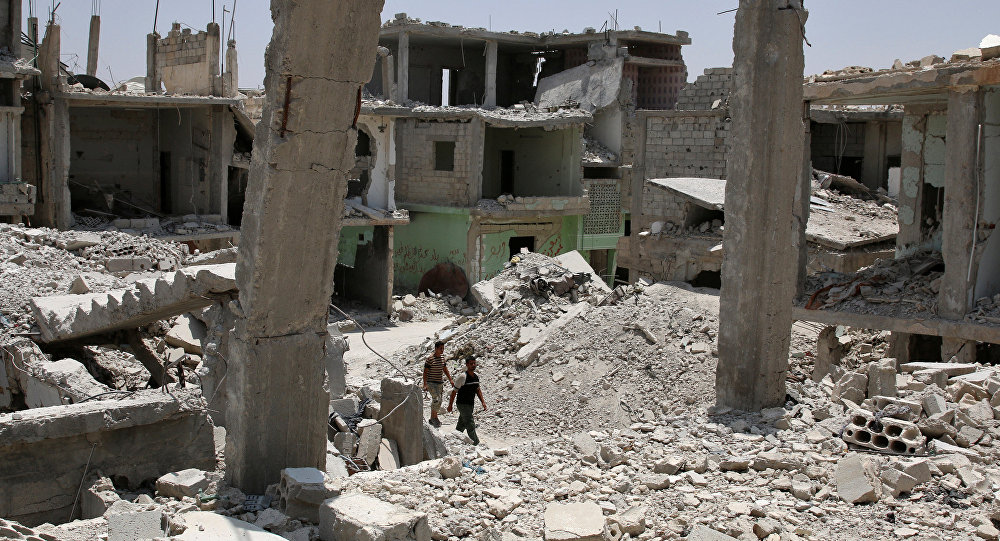Moscow, Beirut- Russia announced on Thursday it reached an agreement with the moderate Syrian opposition on a third de-escalation zone in the countryside of Homs.
In a statement, Russian Defense Ministry Spokesman Major General Igor Konashenkov said: “On July 31, a new round of talks between representatives of the Russian Defense Ministry and the moderate Syrian opposition was held in Cairo.”
The ceasefire within the third de-escalation zone would come into force at 12:00pm local time Thursday.
The Russian spokesperson said that local councils would be established to address the issues of everyday life in the de-escalation zone.
He said the meeting’s participants also reached an agreement concerning the functioning of the third de-escalation zone north of the city of Homs to include 84 settlements with a population of more than 147,000.
According to Konashenkov, “Starting on August 4, the Russian military police will set up two border checkpoints and three observation posts in areas of line of contact of sides of the Homs de-escalation zone.”
The third de-escalation zone doesn’t apply to ISIS and “al-Nusra Front” terrorists.
In the deal, the moderate opposition pledged to expel all the units affiliated with ISIS and “al-Nusra Front” in areas under its control.
The final version of the agreement states that the Syrian regime and its allies would not strike “al-Nusra Front” until September 10.
Ali Ayoub, military commander of Home Liberation Movement, an opposition military group in Homs, told Asharq Al-Awsat that the opposition in Homs has some reservations on the deal, but said that it included more positive points than the negative ones.
“WE are not pleased about the agreement because the Russian side acted on the basis of the uniqueness of its decision-making,” Ayoub said.
However, he said that “revolutionists would not oppose what might decrease the suffering of civilians in the area and would remove the nightmare of killing and destruction without hurting the principles of the revolution.”
